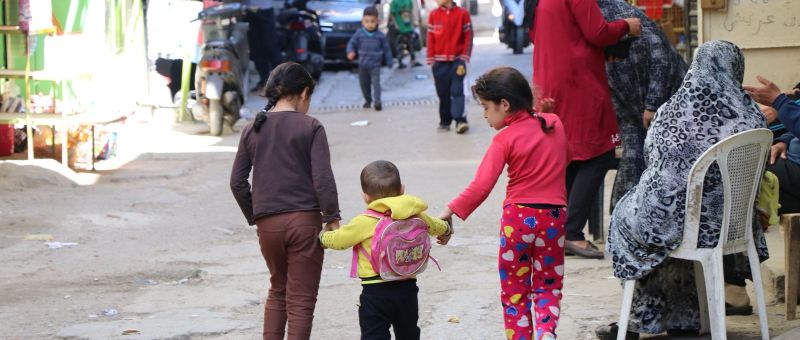The Localisation of Aid and Southern-led Responses to Displacement: Beyond instrumentalising local actors By Elena Fiddian-Qasmiyeh, Refugee Hosts PI and UCL Displacement is primarily a ‘Southern’ phenomenon, with around 90% of all refugees having fled from one country in the global South to another Southern state, through processes of South-South migration. It is equally the…
Tag: local host communities
Turkey – Crossroads for the Displaced
The conflict in Syria has entered its seventh year. In this time, millions of refugees from Syria have travelled through - or have become stuck in - Turkey, a country that has in turn been shaped by recent political flux. From this position, refugees from Syria - and the NGOs, faith groups and agencies that seek…
Refugee Neighbours & Hostipitality
Accounting for the roles of local communities is a key aim of our project, and of the 'Localisation of Aid' agenda more broadly. However, as a result of the mainstream narratives that pervade the literature on conflict-induced displacement, efforts to properly engage with the local have been held back by a failure to fully recognise…
Seeking Evidence to Provide Protection: How Can Local Faith Communities Support Refugees?
We need more nuanced evidence to help policymakers and practitioners better understand the roles that faith-based actors already play, and have the potential to play, in supporting refugees and forced migrants. Summarising existing evidence and key remaining questions presented in a policy note issued by our project partner the Joint Learning Initiative on Faith &…
Engaging with Faith Values to Reshape Responses to Forced Migration
In this piece, Sadia Kidwai of Islamic Relief argues that greater engagement with local faith communities by international humanitarian organisations will allow for more sustainable responses to global forced migration to be identified and implimented. This is an area which is being examined by the JLI Hub on Refugees and Forced Migration, of which Sadia is a Co-Chair,…
Faith-Based Humanitarian Corridors to Italy: A Safe and Legal Route to Refuge
Based on her research in Italy, in this piece Susanna Trotta argues that Italian FBOs' responses to the needs of peoples displaced around the Mediterranean are helping to counteract troubling trends in refugee status recognition, whilst also offering a model of 'replicability' capable of challenging the growing securitisation of refugee protection in the Global North. In…
Gender, Religion and Humanitarian Responses to Refugees
Major international agencies including the United Nations High Commissioner for Refugees (UNHCR) have moved towards partnering with faith-based actors to support displaced persons. Despite this, concerns – and suspicions – remain about the nature and impact of faith-based responses to displacement, often stemming from negative assumptions about the relationship between religion and gender. These assumptions…
Externalising the ‘Refugee Crisis’: A Consequence of Historical Denial?
Externalising the ‘Refugee Crisis’: A Consequence of Historical Denial? By Aydan Greatrick, University College London The Global North has struggled to respond to the ‘Refugee Crisis’ in coherent and meaningful ways, in part because of policy short-termism that fails to take history seriously. If we are to find better ways of responding to displacement, we…
Refugee Youth, Conflict and Communities
In a recent piece published in The Scotsman on 20 September, Alastair Ager reflects on the global refugee crisis, and in particular on the challenges faced by refugee youth, the effects of conflict on health services, and the roles played by local communities in welcoming and supporting people who have been displaced by conflict. The following is…









You must be logged in to post a comment.